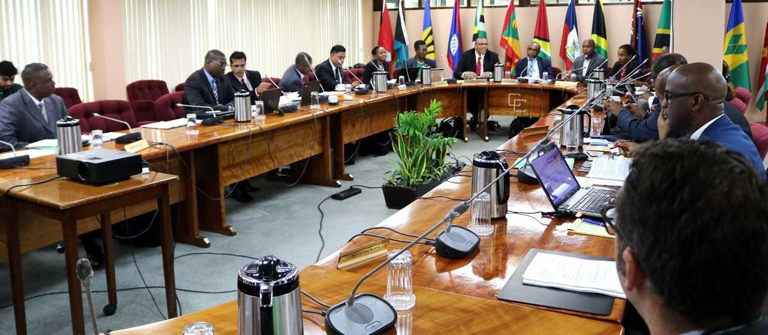With the aim of improving energy efficiency and regulating the sector, CARICOM is in the process of developing a programme to phase out the use of incandescent bulbs, beginning as early as January 2019.
The programme, according to a release yesterday from CARICOM, “will include a roadmap to reduce the import and sale of incandescent light bulbs within the Region, and will guide and support countries in the establishment of regulations and actions for the phasing out exercise”.
The bulbs are to be gradually phased out, starting first with 100 watt incandescent bulbs, followed by further restrictions on smaller lamp sizes, which are to be phased out in incremental stages, over a number of years.
The planning of the programme that will drive the aforementioned mandate, is to be carried out by the CARICOM Secretariat and the CARICOM Regional Organisation for Standards and Quality (CROSQ), with the framework expected to be completed by September.
The release related that the decision to develop the programme was birthed at the Meeting of CARICOM Energy Ministers last month. That meeting was held at the CARICOM Secretariat in Guyana on April 19, and chaired by Senator Darcy Boyce, Minister of State in the Office of the Prime Minister of Barbados with responsibility for Energy.
The statement highlighted that incandescent bulbs, though cheap to manufacture, only transform five percent of its input power to visible light, with the remainder being converted into waste heat. In comparison, its counterparts, the compact fluorescent lamps (CFL) and light emitting diodes (LEDs), which are meant to replace incandescent bulbs, use 60-90% less energy and have a much longer lifespan.
“In 2015, the CARICOM Ministers had approved energy performing standards for CFLs and LEDs. These standards protect consumers from “underperforming products” while simultaneously protecting importers of highly efficient products from competitors saturating the market with “cheaper”, low performance products. Effort is being made for the standards for CFLs and LEDs to be adopted at national levels before year end as an assurance of quality in the efficient lighting alternatives. This is a precursor to the removal of inefficient incandescent bulbs from CARICOM markets,” it stated.
Another development coming out of that engagement was the approval of the 2018 International Energy Conservation Code, along with the accompanying Caribbean Application Document, the Regional Energy Efficient Building Code (REEBC).
“The establishment of the REEBC is a very important step in creating a clear and generally-accepted framework for maximising the efficiency of the “total” energy services in buildings. The approval paves the way for the systematic implementation of the principles and practices related to, among other things, energy efficient lamps and lighting. The phase out of incandescent bulbs is consistent with the requirements of the recently approved Energy Efficiency Code for CARICOM buildings,” the release explained.
It was further noted that successful implementation of the REEBC could eliminate 15,000 barrels of imported oil, thereby saving the region around US$100 million in foreign exchange, daily.
It was noted that Cuba was the first country in the world to successfully phase-out incandescent bulbs. It was reported that in 2007, Cuba banned the import and sale of incandescent bulbs and implemented a programme for their direct substitution with CFLs in households, which resulted in about 116 million incandescent bulbs being replaced by CFLs in every household in Cuba. It was stated that the change reaped peak demand savings of about 4,000 MW of energy and eight million tons of carbon emissions.






